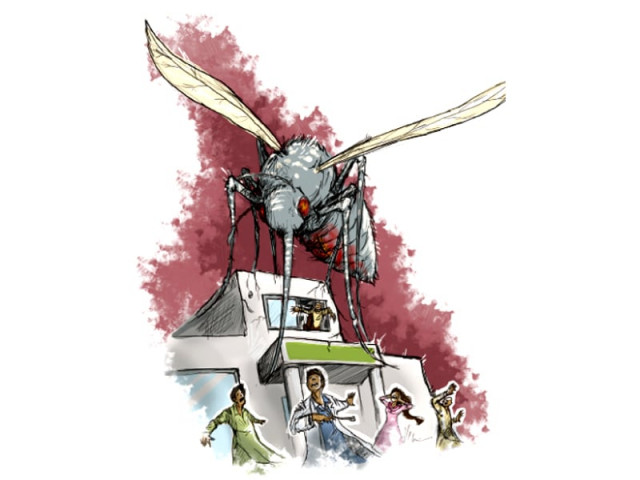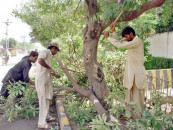Dengue fever: Two test positive in Pindi
Patients in stable condition.

Two patients at Benazir Bhutto Hospital (BBH), Rawalpindi suspected of having dengue fever have tested positive.
Talking to The Express Tribune on Saturday, BBH Medical Superintendent (MS) Dr Asif Qadir Mir said a man, 50, and his son, 18, were brought to the hospital on July 24 and were later diagnosed with dengue fever.
He said that the patients informed the hospital administration that they were residents of Gawalmandi, however, the official was still trying to find their exact place of residence in order to recommend preventive measures in the area to halt its spread.
“Both patients are stable and will hopefully be discharged today,” he said.
A senior Punjab health department official told The Express Tribune that these two cases were a wake-up call for all the concerned departments and officials.
“There is a need to focus more on prevention of the disease by working on its root causes,” said the official.
He was of the view that fumigation was not a permanent solution to get rid of the disease.
“It is the prime responsibility of the city district government to improve the condition of roads, sanitation and solid waste management, which are getting worse with every passing day,” he said.
Heaps of garbage are visible around the city and during the monsoon season. These heaps provide favourable breeding conditions for mosquitoes, said the official.
“The officials concerned should have ensured that the city be cleaned before the start of the monsoon season, as this year there were chances of massive outbreak of the disease, but sadly no one paid any heed and continued only with fogging and fumigation,” said the official.
District Health Officer (DHO) Dr Khalid Randhawa was unavailable to comment.
On the other hand, the Capital Development Authority (CDA) Directorate of Health Services (DHS), completed a campaign to control dengue breeding in ponds and pits during the monsoon season.
DHS Director Dr Hasan Orooj said that administratively, Islamabad had been divided into four zones to find ponds and pits where rainwater would accumulate.
The anti-malaria squad has been instructed to check the municipal limits of CDA on an emergency basis to locate ponds and pits and take action where necessary, he said.
Dr Orooj was of the view that monsoon season posed a big threat in terms of the spread of dengue fever, malaria and other vector-borne diseases.
He requested the general public to drain stagnant water, which was breeding ground of mosquitoes. Orooj said people living in katchi abadis especially need to take preventive measures against malaria.
Published in The Express Tribune, July 27th, 2014.


















COMMENTS
Comments are moderated and generally will be posted if they are on-topic and not abusive.
For more information, please see our Comments FAQ